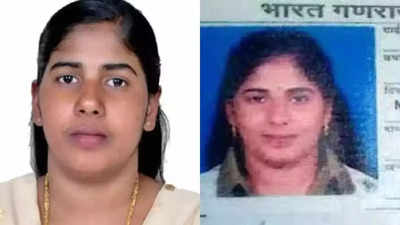In 2009, when Nimisha Priya from Kerala’s Palakkad district travelled to Yemen to work as a nurse, she could never have imagined that her life would one day become the focus of considerable international attention.
The 34-year-old is currently on death row for allegedly murdering Talal Abdo Mahdi, a Yemeni citizen, in 2017 by “injecting him with sedatives”. With Yemen’s President Rashad al-Alimi approving her death sentence, Nimisha’s hopes of any reprieve are now hanging by a thread – a pardon from Mahdi’s family.
The Narendra Modi govt at the centre has assured full cooperation to her family, which is negotiating a pardon through “blood money“. Adding strength to the family’s efforts, Iran has also announced its support, citing humanitarian concerns.
Iran’s offer to help coincides with an upcoming round of foreign office consultations with India, during which Tehran is expected to discuss renewing trade ties, including the resumption of oil supply. This assumes significance because Iran-backed Houthis control Sana’a and the northwest of Yemen, including the Red Sea coastline. Most of Yemen’s population lives in these areas. With Nimisha’s execution likely within a month, her family and supporters are clinging to the hope of a “last-minute pardon”.
Nimisha Priya’s story
Raised by a single mother, Nimisha left for Yemen in 2009 to work as a nurse at a health centre outside the capital city of Sana’a. Her mother, Prema Kumari, worked as a daily wage labourer and could barely make ends meet.
In 2011, Nimisha returned to Kerala to marry Tomy Thomas, a driver in Qatar at the time. The couple returned to Yemen after their wedding, where Thomas worked as a technician. In 2012, Nimisha gave birth to a baby girl.
However, in 2014, Thomas returned to Kochi with their daughter, unable to sustain their livelihood in Yemen. Around the same time, civil war broke out in Yemen, prompting India to impose travel restrictions on the conflict-ridden country.
After working in multiple hospitals, Nimisha dreamed of opening her own clinic in Yemen. However, local rules required her to have a Yemeni partner. It was then that she met Mahdi at the hospital where she worked; his wife had given birth there.
According to an open letter written by Nimisha after her arrest, she met Mahdi around Oct 2014. During their conversations, Mahdi expressed his desire to visit India, and she shared her plans to open a clinic.
The clinics that nurses run in Yemen serve as primary consultation centres for patients. They also double up as path labs. “I gave Talal the money (6 lakh Yemeni riyals, equivalent to Rs 2 lakh) to pay the building owner and complete the paperwork for the clinic,” she wrote.
Mahdi even accompanied her to Kerala for her daughter’s baptism in 2015. She returned to Yemen a month later with the money her husband had collected for the clinic.
In 2015, Mahdi allegedly forged documents claiming a 33% share in the business. Nimisha then accused him of torturing her for money, confiscating her passport and other documents, and creating a fake marriage certificate to show them as a couple. This was followed by a series of alleged physical and sexual abuses. In a bid to retrieve her documents, Nimisha, with the help of a fellow Yemeni nurse, Hannan, allegedly tried to sedate Mahdi. However, an overdose resulted in his death.
Panicking, the duo reportedly dismembered his body and disposed of it in a water tank. Both were eventually arrested. Hannan is currently serving a life sentence in the same case.
What is blood money?
Since her arrest in 2017, Nimisha has received support from several groups. One such organisation, Save Nimisha Priya International Action Council, was established in 2020 to raise funds for her case.
Under Sharia law, ‘diyah’ or blood money is a form of financial compensation provided to the victim’s family by the accused in serious crimes like murder. This system allows the victim’s family to negotiate a settlement in exchange for mercy.
Nimisha’s lawyer Subhash Chandran revealed that $40,000 (approximately Rs 34 lakh) was demanded in advance by Yemeni tribal leaders to initiate negotiations.
The first instalment of $20,000 was paid several months ago, and the second instalment was handed over in Dec through the Indian diplomatic mission in Saudi Arabia. However, no positive response has been received so far.
Family holds on to hope
Nimisha’s family remains hopeful. “None of us has slept well after the presidential order. We continue to pray. We are told the death sentence will be executed within a month of the President’s sanction. We can’t imagine life without her,” says Thomas, now an auto-rickshaw driver in Idukki in Kerala. Nimisha’s mother, currently in Sana’a, made an emotional appeal to the Indian government to save her daughter’s life.
Thomas acknowledges that “mistakes may have happened” and seeks forgiveness and support from Mahdi’s family. “If the victim’s family and community leaders accept blood money, Nimisha may yet be saved,” he says.
Thomas last spoke to his wife two days before the presidential sanction was handed out. “During our brief conversation, Nimisha was optimistic and talked about reuniting with us. She has seen our daughter (now 13 years old) only through video calls,” he said.




